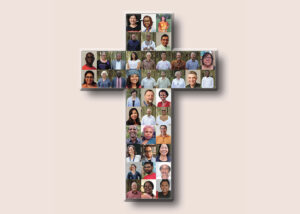My memories of the church I grew up in are good ones. I liked seeing my friends in Sunday school every week and enjoyed singing in the grown-up service. The Halloween game nights, Christmas musicals and Vacation Bible Schools (VBS) were fun. They were also opportunities—at least the musicals and VBS—for people to accept Jesus Christ into their hearts. Having prayed that prayer when I was three or four, I always waited for the general prayer the pastor was praying to end, wondering if any had been saved.
A large part of my young adulthood thus far has been coming to terms with the dismantling of my evangelical worldview. Some might say it happened because I went to a liberal arts university or because I worked for a faith-oriented-but-radical-left-leaning magazine. Some might say it’s just because I grew up.
I think it’s a combination. But whatever the reason, I become frustrated when I read or hear anything about spreading the gospel in the hope of converting others. For example, Canadian Mennonite columnist Phil Wagler’s piece, “Jesus in a world in upheaval,” Oct. 12, page 8—in which he encourages the church to see the Syrian refugee crisis as an opportunity to “look at the fields” (quoting John 4:35)—is hard for me to digest.
I am not interested in converting anyone to Christianity. The time for “harvesting” is over. It’s now time for listening, and for helping with open hands and closed mouths. Hearing survivor testimonies at the Truth and Reconciliation Commission event in Vancouver and reading the indigenous-settler dialogue in Buffalo Shout, Salmon Cry (Herald Press, 2013) played a major part in this shift for me. It’s become clear to me that what I “need to do” as a Christian is to listen and love without an agenda.
This makes it interesting as I watch my four-year-old attend Sunday school and learn the Bible stories that I did as a kid. I’m hoping he draws hope and inspiration from them and experiences some sense of wonder when he hears what God’s all about.
But I don’t want him to grow up thinking he needs to tell other people about Christ. I want him to see Christ in the people that he meets in his daily life, no matter what race, religion or economic status, and welcome them. I want him to hear about displaced people, like the Syrian refugees, and think, how can I help, not, “Oh, these people are ready to become Christians because they’re in such great need.” I want him to recognize the religion and culture that people already have, and not assume that his trumps theirs.
I recently read through the Mennonite Central Committee Peace Sunday packet. It’s an excellent resource that nudges us in the right direction when it comes to getting to know “the other.”
While the theme is “Living as people of peace in a time of fear and terror,” I also find the message helpful as I consider the “Christian thing to do” in my interactions with people from different cultures and religions. At the end of the “Welcome and invitation,” the Peace Sunday packet states, “When we look around and see opportunities for healing and mutual transformation, then, perhaps, we are seeing with the eyes of the Lord.”
That’s what I’m interested in: Building relationships with people with a spirit that is ready to learn, not ready to teach. The colonial history of Christian evangelism is a severe reminder of how damaging it can be to preach Jesus as Saviour to people who seem “ready” for it.
Katie Doke Sawatzky (katiesawatzky@gmail.com) writes and edits from Regina.







Leave a Reply
You must be logged in to post a comment.